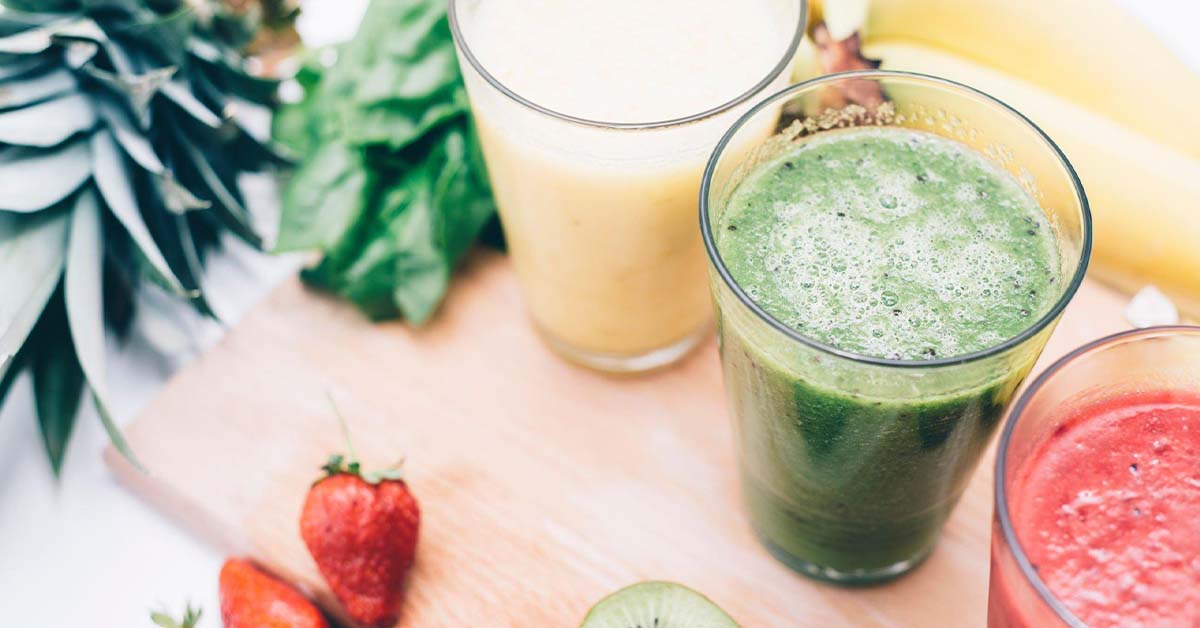Maintaining digestive health is crucial for our overall well-being. When it comes to following a liquid diet, it is important to understand how it can affect our digestion. Liquid diets consist of consuming mainly liquids such as juices, soups, and smoothies, while minimizing solid food intake. These diets are often recommended for various reasons, such as post-surgery recovery, weight loss, or medical conditions that require a temporary shift in eating habits.
Table of Contents
ToggleUnderstanding the effects of a liquid diet on digestion

A liquid diet can have both positive and negative effects on digestion. On one hand, it can provide relief to the digestive system by allowing it to rest and heal. This can be beneficial for individuals with certain gastrointestinal conditions, such as inflammatory bowel disease or diverticulitis.
On the other hand, a liquid diet may lack the fiber and bulk that solid foods provide, which can lead to changes in bowel movements.
Factors that impact bowel movements on a liquid diet
Several factors can influence bowel movements on a liquid diet. The composition of the liquid diet plays a significant role. If the diet consists of primarily clear liquids, such as water and broth, bowel movements may decrease in frequency and become less bulky.
However, if the diet includes thicker liquids like smoothies or pureed foods, bowel movements may be more regular. Other factors to consider include the individual’s overall health, activity level, and the duration of the liquid diet.
It is important to note that each person’s body is unique, and the impact of a liquid diet on bowel movements may vary.
How often should you expect to poop on a liquid diet?
The frequency of bowel movements on a liquid diet can vary from person to person. Some individuals may experience daily bowel movements, while others may have them less frequently. It is generally considered normal to have a bowel movement every one to three days, even on a liquid diet. However, if there is a significant decrease in bowel movements or if other symptoms such as bloating or abdominal pain occur, it is important to consult a healthcare professional.
Signs of digestive health issues on a liquid diet
While occasional changes in bowel movements are normal on a liquid diet, there are certain signs that may indicate digestive health issues. These include:
- Diarrhea: Frequent loose or watery stools can be a sign of underlying digestive problems or an inadequate liquid diet.
- Constipation: Difficulty passing stools or infrequent bowel movements can indicate a lack of fiber or hydration in the liquid diet.
- Bloating and gas: Excessive gas and bloating may be a result of an imbalanced liquid diet or difficulty digesting certain liquids.
- Abdominal pain: Persistent or severe abdominal pain should not be ignored and may require medical attention.
If any of these symptoms persist or worsen, it is essential to seek medical advice to ensure the proper management of your digestive health.
Tips for promoting regular bowel movements on a liquid diet

To promote regular bowel movements on a liquid diet, consider incorporating the following tips:
- Stay hydrated: Ensure you are consuming enough liquids throughout the day to prevent dehydration, which can contribute to constipation.
- Include fiber-rich liquids: Add fiber-rich liquids such as vegetable juices or smoothies with blended fruits and vegetables to your diet to support bowel regularity.
- Consider supplements: If your liquid diet lacks essential nutrients, consult a healthcare professional to determine if a fiber or probiotic supplement is necessary.
- Maintain physical activity: Engage in light physical activity, such as walking or gentle stretching, to stimulate bowel movements.
- Listen to your body: Pay attention to your body’s cues and adjust your liquid diet accordingly. If you notice any adverse effects, consult a healthcare professional for guidance.
Foods and supplements that can aid digestion on a liquid diet
While on a liquid diet, certain foods and supplements can aid digestion and promote bowel regularity. Consider incorporating the following options:
- Ginger: Ginger has been used for centuries to soothe the digestive system. Add fresh ginger to your smoothies or consume ginger tea for its potential digestive benefits.
- Probiotics: Probiotic supplements or fermented liquids like kefir can help maintain a healthy balance of gut bacteria, supporting digestion.
- Vegetable juices: Juices made from vegetables like spinach, kale, and carrots can provide essential nutrients and promote healthy digestion.
- Chia seeds: Chia seeds are a good source of fiber and can be added to smoothies or consumed in liquid form to support bowel regularity.
Remember to consult with a healthcare professional before incorporating any new foods or supplements into your liquid diet.
Common misconceptions about bowel movements on a liquid diet
There are several misconceptions surrounding bowel movements on a liquid diet that need to be addressed. One common misconception is that you should not have any bowel movements while on a liquid diet. This is not true, as the body still produces waste even with a limited solid food intake. Another misconception is that frequent bowel movements are a sign of a healthy digestive system. While regular bowel movements are important, the frequency can vary depending on various factors and should not be the sole indicator of digestive health.
When to seek medical advice for digestive health concerns on a liquid diet
If you experience persistent or severe digestive health concerns while on a liquid diet, it is important to seek medical advice. This includes prolonged constipation, diarrhea, severe abdominal pain, or any other worrisome symptoms. A healthcare professional can evaluate your condition, identify any underlying issues, and provide appropriate guidance and treatment.
Frequency Asked Questions
Why is it important to maintain digestive health on a liquid diet?
Digestive health is essential for overall well-being. On a liquid diet, it’s crucial to ensure your digestive system remains in good condition, as it impacts nutrient absorption and overall comfort.
How often should I expect to have a bowel movement while on a liquid diet?
The frequency of bowel movements can vary depending on the individual and specific circumstances, but it’s generally recommended to aim for at least one bowel movement every 1-3 days while on a liquid diet.
Can a liquid diet lead to constipation?
Yes, constipation can be a concern on a liquid diet, especially if it lacks fiber. Staying hydrated and consuming fiber-rich liquids can help prevent constipation.
What are some common causes of diarrhea on a liquid diet?
Diarrhea can result from excessive consumption of certain liquids or irritation of the digestive tract. It may also be a side effect of certain medications or supplements.
How can I promote regular bowel movements on a liquid diet?
To promote regular bowel movements, focus on staying hydrated, consuming fiber-rich liquid options, and incorporating some solid food or fiber supplements as advised by your healthcare provider.
Are there any potential risks to digestive health on a liquid diet?
Yes, there are potential risks, such as nutrient deficiencies and imbalances. It’s important to work with a healthcare professional to ensure you are meeting your nutritional needs while on a liquid diet.
When should I seek medical advice if I’m experiencing digestive issues on a liquid diet?
If you experience severe or persistent digestive issues, such as chronic constipation, diarrhea, or abdominal discomfort while on a liquid diet, it’s advisable to consult a healthcare provider for a proper evaluation and guidance on managing your digestive health.
Conclusion
Maintaining digestive health on a liquid diet requires attention and understanding. While changes in bowel movements are normal, it is crucial to monitor any signs of digestive health issues. By staying hydrated, incorporating fiber-rich liquids, considering supplements, and seeking medical advice when necessary, you can promote regular bowel movements and overall digestive well-being. Remember to listen to your body and make adjustments to your liquid diet as needed. With proper care, you can support your digestive health while on a liquid diet.


